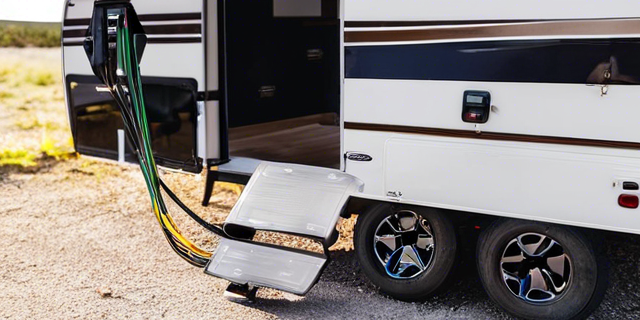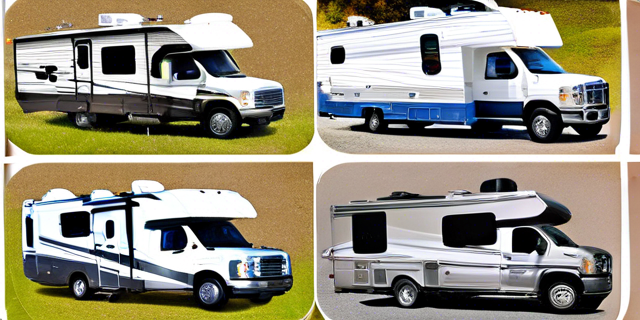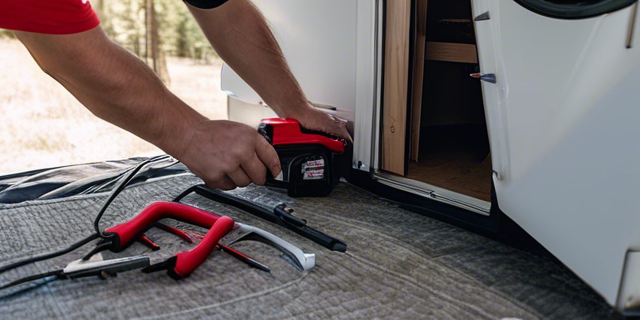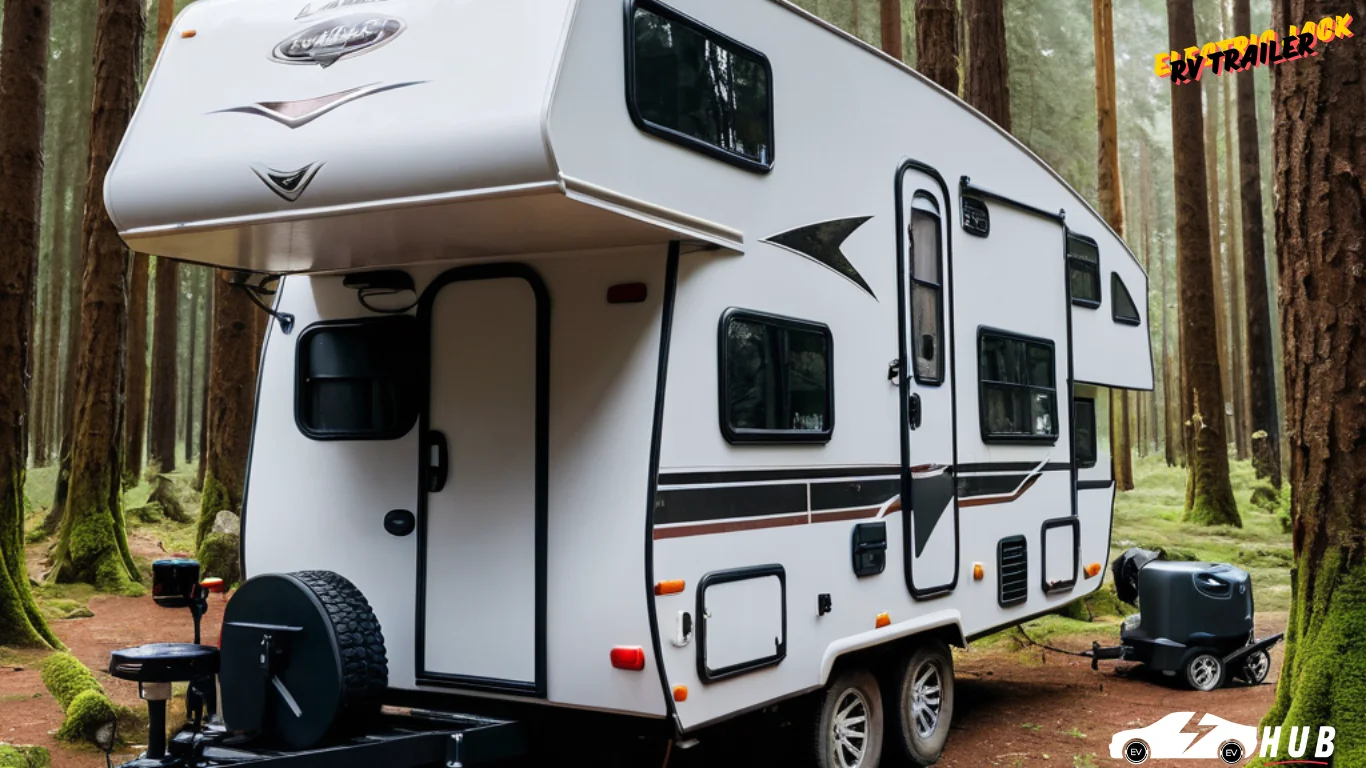Introduction
Owning an Electric Jack for RV Trailer brings the freedom of travel, but it also involves some challenges, such as setting up and leveling your trailer. Traditional manual jacks can be labor-intensive and time-consuming. That’s where electric jacks come in—a convenient and efficient tool to lift and stabilize your trailer with minimal effort. In this comprehensive guide, we’ll walk you through the benefits of electric jacks, key factors to consider, types of jacks available, and tips for installation and maintenance.
Understanding the Benefits of Electric Jacks for RV Trailers

Increased Convenience and Ease of Use
One of the primary advantages of electric jacks is their sheer convenience. Unlike manual jacks that require significant physical effort and time to operate, electric jacks can be controlled at the touch of a button. Whether you’re hitching or unhitching your RV trailer, adjusting its height, or leveling it on uneven terrain, electric jacks simplify the entire process. Most modern models even come with remote control features, enabling you to operate the jack from a distance, adding another layer of convenience.
Safety and Stability Improvements
Electric jacks not only offer convenience but also contribute to the overall safety of your RV trailer setup. With precise controls, these jacks allow you to stabilize the trailer more accurately, reducing the risk of instability. Additionally, many electric jacks come equipped with automatic leveling features, which ensure that the trailer remains securely in place during use. This is especially important when parking on sloped or uneven ground, where manual jacks may not provide the same level of control.
Reduced Physical Stress to the User
Basically, electric jacks are great for RVers who may not want to bother themselves with physical strains of cranking a manual jack. These jacks rule out repetitive application of manual effort, hence ideal for persons with some form of mobility issues or those who seek a hassle-free RV experience. Now, you can raise and lower your trailer without muscle power involved; so you have more time and energy to enjoy your trip.
Key Factors to Consider When Selecting an Electric Jacks for RV Trailers

Lifting Capacity and Weight Rating
One of the most critical factors when choosing an electric jack is ensuring it can handle the weight of your RV trailer. Always check the lifting capacity of the jack, which should be higher than the gross weight of your trailer. Most electric jacks can lift between 3,500 to 6,000 pounds, but it’s crucial to select one that suits your specific trailer weight to prevent straining the motor or causing potential damage.
Motor Power and Speed
The motor’s power directly influences the jack’s lifting speed and efficiency. A more powerful motor will lift the trailer faster, saving time during setup. However, keep in mind that more power may also draw more energy from your RV’s battery. Finding the right balance between motor power and speed ensures efficient operation without draining your battery unnecessarily.
Battery Type and Capacity
Electric jacks typically draw power from your RV’s battery. It’s essential to understand your RV’s battery type and capacity to ensure compatibility with the jack. Most electric jacks are compatible with 12V batteries, but you’ll need to consider the jack’s power consumption, especially if you plan to use other battery-operated devices in your RV.
Jack Height and Reach
Different RV trailers require varying jack heights. Before making a purchase, measure your trailer’s hitch height to ensure the jack you choose has sufficient reach. The jack should be able to lift the trailer high enough to hitch and unhitch easily, especially on uneven or sloped terrain.
Mounting Options and Compatibility
The mounting type of the electric jack is also important. Most RV jacks are designed to be front-mounted on the A-frame of the trailer. Ensure that the electric jack is compatible with your trailer’s specific frame design. Some electric jacks may come with adjustable mounting brackets, adding more flexibility.
Additional Features (e.g., Remote Control, Automatic Leveling)
Modern electric jacks come with a variety of advanced features. Remote controls allow you to operate the jack from inside your RV or at a distance, making the process even more convenient. Automatic leveling systems are another feature that can simplify setup, ensuring your RV is stable with minimal manual input.
Different Types of Electric Jacks for RV Trailers
Scissor Jacks
Scissor jacks are commonly used for stabilizing RV trailers and providing a steady foundation. These jacks are known for their compact design and can be easily deployed with an electric motor. They are great for providing stability but aren’t always the best option for heavy lifting.
Winch Jacks
Winch jacks operate using a winching mechanism that provides increased lifting power, making them ideal for heavier trailers. These jacks usually require more space but offer better durability and lifting capability.
Hydraulic Jacks
Hydraulic jacks use fluid pressure to lift and stabilize trailers. They’re known for their lifting power and can handle heavy trailers with ease. However, they tend to be more expensive than scissor or winch jacks and require more maintenance.
Comparison of Advantages and Disadvantages
Each type of electric jack offers specific advantages. Scissor jacks are compact and affordable but not ideal for heavy trailers. Winch jacks provide powerful lifting capabilities but may be bulkier, while hydraulic jacks offer the most lifting power but at a higher cost. Consider your budget, RV weight, and desired features when choosing the right type of electric jack.
Installation and Maintenance Tips

Professional Installation vs. DIY
While some RV owners may prefer to install an electric jack on their own, others might opt for professional installation to ensure everything is set up correctly. DIY installation is feasible for those with experience, but professional services provide the peace of mind that the jack is installed safely and accurately.
Wiring and Electrical Considerations
Installing an electric jack typically requires wiring it to your RV’s electrical system. Ensure you follow the manufacturer’s guidelines for safe wiring, or hire an electrician if you’re unsure about the process. Incorrect wiring could lead to jack malfunction or battery drainage.
Regular Maintenance and Inspections
Regularly inspect your electric jack for wear and tear. Look for signs of rust, damaged wiring, or reduced motor performance. Clean and lubricate moving parts as needed to keep the jack functioning smoothly. Proper maintenance ensures longevity and safety during operation.
Troubleshooting Common Issues
Common issues with electric jacks include slow operation, faulty wiring, or motor failure. If you notice your jack struggling to lift or lower, inspect the wiring and connections. Some times, the motor has to be replaced. Consult your owner’s manual or contact customer support for troubleshooting advice.
Frequently Asked Questions (FAQs)
How Much Weight Can an Electric Jack Lift?
Electric jacks can lift between 3,500 to 6,000 pounds, depending on the model. Always choose a jack with a capacity that exceeds the weight of your RV trailer to avoid straining the motor.
What Is the Average Battery Life of an Electric Jack?
The battery life depends on usage and the power requirements of the jack. On average, a 12V battery can operate an electric jack for several uses before needing a recharge.
Can I Use an Electric Jack for Other Purposes Besides Leveling My RV Trailer?
Yes, some electric jacks can be used for other heavy lifting tasks, but always refer to the manufacturer’s guidelines to ensure safe usage.
How Do I Choose Between a Scissor Jack and a Winch Jack?
Scissor jacks are more compact and affordable, making them suitable for light to medium trailers, while winch jacks offer better lifting power and are ideal for heavier trailers.
What Are the Safety Precautions to Follow When Using an Electric Jack?
Always ensure the jack is on a level surface, avoid overloading it, and regularly inspect it for any signs of wear. Never stand underneath a lifted trailer without additional supports in place.
Conclusion
Choosing the right electric jack for your RV trailer involves understanding your trailer’s weight, the jack’s motor power, and key features like height, battery compatibility, and mounting options. Electric jacks not only enhance convenience but also ensure safety and ease of use. By considering the type of jack and following proper installation and maintenance, you can enjoy a smooth and hassle-free RV experience. For those looking to invest in the best electric jack, researching various options and possibly seeking professional advice can ensure the perfect choice for your needs.
